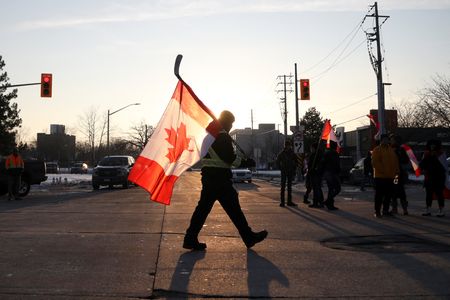On Saturday, U.S. Secretary of State Antony Blinken will travel to Fiji to reassure Pacific island leaders that Washington and its allies are committed to providing security and Covid-19 vaccines, as China steps up its aid and influence in the area.
First Secretary of State Blinken’s visit to Fiji in four decades follows a meeting of the Quad grouping of the US, Japan, India, and Australia.
While on his way to Melbourne, Blinken stated that “The Quad is becoming a powerful mechanism for delivering, helping to vaccine large parts of the world, getting many vaccines out there.” Blinken. He went on to say that it would improve maritime security by “pushing back against aggression and coercion in the Indo-Pacific region.
)
China and the United States, as well as their allies, are vying for the attention of the 18 Pacific island leaders invited to Blinken’s video meeting.
Micronesia’s President David Panuelo has pledged to raise the issue of climate change and illegal fishing with Blinken.
Panuelo press secretary Richard Clark said that the United States and its allies may have seen China’s increased presence in the Indo-Pacific as a call for greater engagement in the region.
Recently, Beijing has increased its military and police ties with Pacific island nations, while lending and constructing infrastructure.
Following a summit of Pacific island countries’ foreign ministers in October, Beijing released a joint statement promising support for China’s Belt and Road Initiative, the country’s signature infrastructure policy (BRI).

According to Peter Connolly, a former army officer, and Ph.D. candidate at the Australian National University, China is using economic activity associated with the BRI to achieve geopolitical goals.
In an email to Reuters, he said, “The Melanesian states saw the BRI as a source of much-needed finance and infrastructure, but Melanesians are increasingly aware of what this has cost them, and what it could cost them in the future.” He was referring to the countries of the southwest Pacific that do not have defense agreements with the United States.
Also Read: Bills, according to Jill Biden, aren’t footballs to be thrown around or swung around.
Base fears
Researchers at the Australian National University who study China’s activity in the Pacific have expressed concern that China could establish a military base on Australian soil.
After riots broke out in the Solomon Islands in December, China sent police trainers and riot gear there for the first time.
An Australian security agreement had previously sent police to the Solomon Islands, which “spooked” the country, according to Smith.

A focal point for the region 47 years ago, Fiji became the first Pacific island nation to recognize China diplomatically, and since then, Beijing has sent hundreds of military and police vehicles to the country.
In 2006, a military coup brought Frank Bainimarama to power in Fiji, and sanctions against the country were only lifted in 2014 following free and fair elections in that country.
Since Bainimarama’s heart surgery, he has been recuperating in Australia, but the Fijian government hasn’t commented on whether he’s returned to Suva.
In a statement this week, the Fijian government said that “the American people and their leaders belong at the heart of our Blue Pacific neighborhood.”
The U.S. State Department praised the quick aid response to tsunami-ravaged Tonga last month as an example of defense cooperation with Australia and other allies.
When Tonga’s capital was rebuilt in 2006, it became heavily indebted to Chinese companies, which is why two Chinese navy aid ships are currently on their way to Tonga.
As Lowy Institute Pacific Islands Program Director Jonathan Pryke noted, “China’s presence in the region has certainly spurred more interest.”

Australian defense planes have arrived in Kiribati and the Solomon Islands, which switched diplomatic recognition from Taiwan to Beijing in 2019, with vaccines and emergency medical teams.
Australia’s Foreign Minister Marise Payne said on Wednesday that the Quad nations had already delivered 485 million doses of vaccines to the Indo-Pacific region.